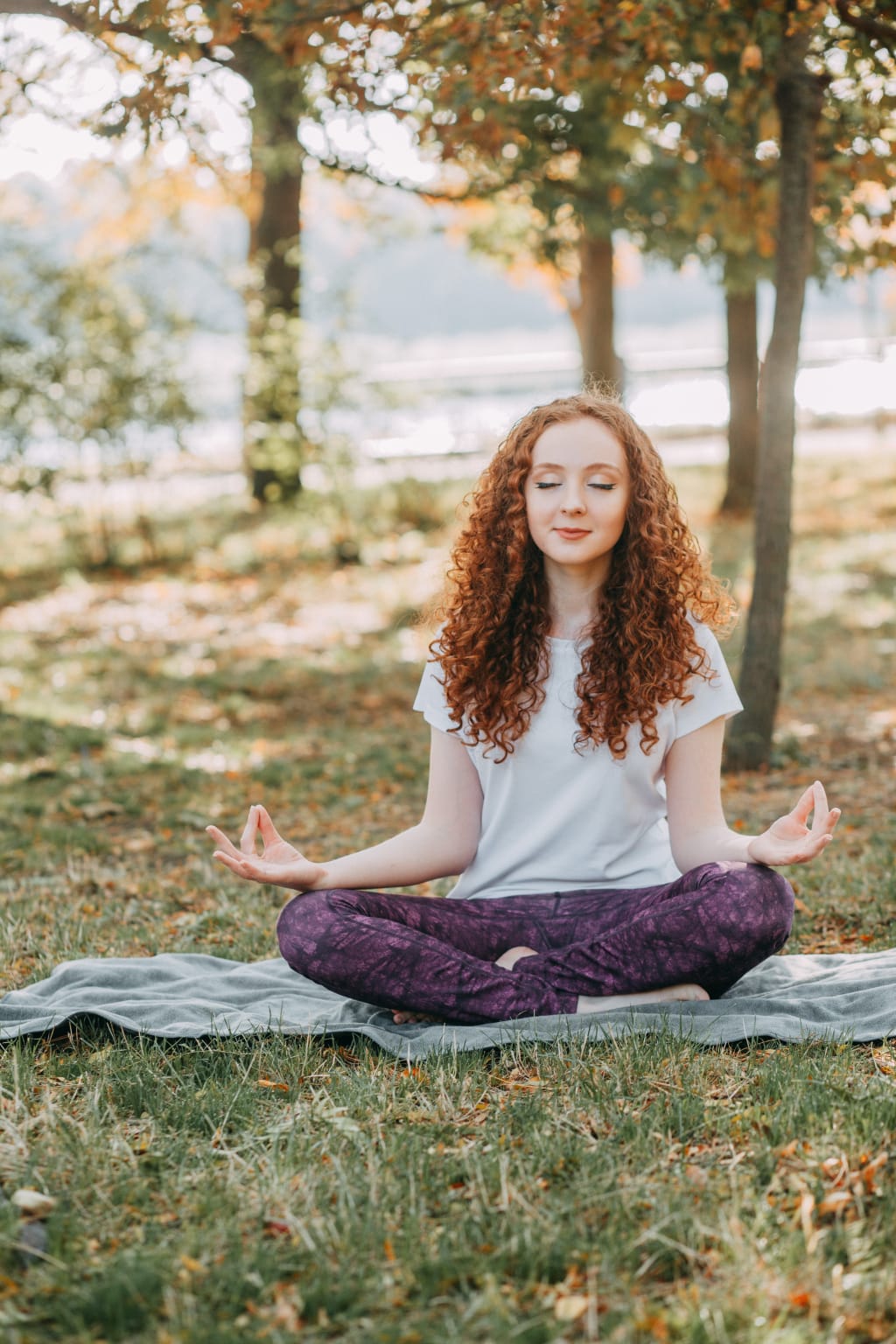Can Meditation Really Change Your Life for the Better?
How Daily Meditation Can Help You Find Inner Peace and Happiness?

Meditation is an ancient practice with roots dating back thousands of years in diverse cultures, such as Eastern spiritual traditions of Hinduism and Buddhism, and indigenous cultures worldwide. Despite its uncertain origins, meditation has been widely utilized for mental, physical, and spiritual growth. In recent times, the scientific community has shown growing interest in understanding the underlying mechanisms of meditation, which has led to a wealth of research highlighting its numerous benefits.
Meditation works by regulating the autonomic nervous system, which governs automatic bodily processes like heart rate and breathing. By focusing their attention on a particular object, thought, or sound, practitioners can calm their minds and reduce stress. This, in turn, leads to decreased activity in the sympathetic nervous system and an increase in the parasympathetic nervous system, resulting in a more relaxed state.
Studies have also shown that regular meditation has a positive effect on various regions of the brain, such as the prefrontal cortex, responsible for executive function, decision-making, and emotional regulation, and the amygdala, involved in processing emotions and stress.

How Daily Meditation Can Help You Find Inner Peace and Happiness?
Meditation is a mental exercise that has been practiced for thousands of years, with roots in ancient spiritual traditions such as Buddhism and Hinduism. However, in recent years, meditation has gained popularity as a means of promoting mental and physical well-being, leading to a growing body of scientific research that supports its many benefits.
One of the key benefits of meditation is its ability to reduce stress and promote relaxation. The practice of mindfulness and focusing on the present moment has been shown to activate the relaxation response, a physiological state of rest and rejuvenation that counters the negative effects of stress. This reduction in stress has been linked to a host of health benefits, including lower blood pressure, reduced muscle tension, and improved sleep.
Meditation also has cognitive benefits, improving focus, attention, and memory. The practice of mindfulness can increase gray matter density in the prefrontal cortex, the part of the brain responsible for executive functions such as decision making and problem solving. Furthermore, research has shown that regular meditation practice can increase attentional control, working memory, and cognitive flexibility, making it an effective tool for enhancing cognitive performance.
In addition to its cognitive benefits, meditation has also been shown to have positive effects on emotions and mental well-being. Regular practice has been linked to a reduction in symptoms of anxiety and depression, and has been shown to increase feelings of happiness, contentment, and self-awareness. Furthermore, mindfulness has been shown to increase resilience, allowing individuals to better cope with stress and negative emotions.
Meditation also has potential physical benefits, as it has been linked to improved immune function, reduced inflammation, and improved cardiovascular health. Furthermore, mindfulness has been shown to positively affect the autonomic nervous system, the system that controls unconscious bodily functions such as heart rate and digestion. By promoting relaxation, meditation can help improve overall physical health.
Meditation can be an effective tool for personal growth and self-discovery. The practice of mindfulness allows individuals to gain insight into their own thoughts, emotions, and patterns of behavior, and can promote self-awareness and personal growth. Furthermore, mindfulness has been shown to increase compassion and empathy, making it an effective tool for building positive relationships with others.

Getting started with meditation is easier than you might think. Here are some simple tips to help you get started:
- Find a quiet place: Select a peaceful and comfortable location where you won’t be disturbed during your meditation.
- Set a timer: Choose a timer for 5–10 minutes and use this time to focus on your breath and let go of any thoughts. As you get more comfortable with meditation, you can gradually increase the length of your sessions.
- Get comfortable: Find a comfortable posture, such as sitting cross-legged on the floor or in a chair with your back straight. Ensure that your spine is straight, your shoulders relaxed, and your hands resting in your lap or on your knees.
- Focus on your breath: Close your eyes and focus your attention on your breath. Try to slow down your breathing, and notice the sensation of the air moving in and out of your body.
- Let go of thoughts: When thoughts arise, simply acknowledge them and then let them go. Don’t dwell on them or try to suppress them. Instead, simply return your focus to your breath.
- Stay focused: Try to maintain your focus on your breath and let go of any thoughts, emotions, or sensations that arise. If you get distracted, simply acknowledge the distraction and return your focus to your breath.
- End the session: When the timer goes off, slowly open your eyes, take a deep breath, and return to your day.
“Remember that meditation is a practice, and it takes time to develop. Start with a few minutes a day and gradually increase the duration of your sessions as you become more comfortable with the practice. With time and regular practice, you’ll start to experience the many benefits of meditation, such as increased focus, reduced stress and anxiety, and improved overall well-being.”
The practice of meditation offers a wealth of benefits, both physical and mental. Incorporating daily meditation into your routine can help reduce stress, improve cognitive performance, enhance mental well-being, and promote personal growth. Whether you are looking to improve your health, increase your focus, or simply find a moment of peace in a busy world, meditation is a powerful tool that is well worth exploring.
About the Creator
Surya
Discover new perspectives and expand your mind! I bring a unique mix of professionalism and playfulness as I share my experiences and delve into diverse subjects. Let's explore the world together!
Enjoyed the story? Support the Creator.
Subscribe for free to receive all their stories in your feed. You could also pledge your support or give them a one-off tip, letting them know you appreciate their work.
Reader insights
Good effort
You have potential. Keep practicing and don’t give up!
Top insights
On-point and relevant
Writing reflected the title & theme
Easy to read and follow
Well-structured & engaging content
Excellent storytelling
Original narrative & well developed characters
Expert insights and opinions
Arguments were carefully researched and presented
Eye opening
Niche topic & fresh perspectives
Heartfelt and relatable
The story invoked strong personal emotions
Compelling and original writing
Creative use of language & vocab
Masterful proofreading
Zero grammar & spelling mistakes





Comments
There are no comments for this story
Be the first to respond and start the conversation.